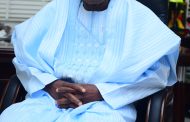It is not the level of violence that anybody can be indifferent to. Collectively, they send the most potent signal that all is not well with the polity and the consequences could go in any direction. Secondly, human lives are involved and lastly, the number is huge. In any case, it is not just starting. This has been the case since 2016. In the current phase, Imo, Ebonyi and Benue states are where it is happening.
Previously, Zamfara, Katsina and Southern Kaduna were the theatres. Before that, it was in the central Nigerian states of Benue, Taraba and Plateau. Birnin Gwari preceded these just as Borno State where Boko Haram held sway led in the figures of death and human misery before 2015.
It is one thing for violence to take over Nigeria, it is another thing entirely how Nigerians frame the violence. And it is in framing the violence that the problem lies. In a previous Intervention listing of the frame game, (The Politics of Truth in Nigeria’s ‘Herdsmen’ Conflict) there are no less than twenty or so points of departure.
In spite of Nigeria’s relative diversity, that number is still a shocking reality because it shows that the fragmentation of the society is to the level that there are no voices which can call Nigeria to order. If as sophisticated as the British polity is, it still needs a moderating voice, what more of Nigeria which is still basically a pre-industrial society? The examples can go unend. Except those who share a plastic view of democracy, every society needs one form or the other of such voice or the

Nigeria’s reservoir of wise men
The presidency which should be the first port of call in calling Nigeria to order has been missing in action. It is missing in action in the sense that its own narrative of the spate of violence has been rejected, mainly because it has been largely perceived to be insufficiently neutral and proactive enough. It is, indeed, the tragedy because the Presidency is about the only institution that should always rise above capture and be the umbrella, irrespective of whatever is the situation.
Chief Olusegun Obasanjo whose two time leadership of Nigeria and global stature ought to have given him the power of an overarching voice in all this has equally apparently lost it because his own analysis is also not perceived to be neutral enough. The same applies to others in that league, particularly General T Y Danjuma. Majority of the people in this league appear to have become too angry to be tireless peacemakers except that they are still signifiers.
Only General Yakubu Gowon and Abdulsalami Abubakar appear to be unscathed but General Gowon is quite elderly by now.
But if, for whatever reasons, the answer cannot be found in individual agency, what of the civil society, particularly the media segment? Could it be the case that the media is also not seen as neutral enough or it has not actually done enough? And who determines each of that?
What of the radical constituency, with a rich history of framing intervention? The problem here is whether the constituency has been sufficiently loud enough to count as a factor. Quite a few sharp interventions from there but doubtful if such came with the collective stamp of authority of yore.
What of the powers? It would take a thorough going insider to know what each of the United States, China, Britain, France, Germany, Russia and the whole lot of them are doing about Nigeria. If Nigeria presents such a divided self-understanding at home, then it may be too much to expect any magic from global powers, most of which have their own internal problems or whose geopolitical fixations could get in the way of answers.
Still, the price of living is the challenge of problem solving. An imploding Nigeria is certainly a problem for ordinary Nigerians and blacks everywhere who are going to suffer if the spate of violence should attain a worst case scenario. As the legendary historian, Reuben Ziri, once put it so aptly, it is easier to break water into its component elements than to break Nigeria into its diffuse constituents. The breaking option is easier said than done because it is most unlikely to be a neat exercise. It is bound to be messy.
How important it would be if Nigerian leaders at all levels appreciate this in handling the current spate of violence. The only happy indicator is the ‘Never Again’ slogan which appeared brilliantly but only to disappear almost immediately. How great would that be if it were to be transformed into a moving slogan for overcoming this phase? It is original. It responds very well to what is going on. It is, parsimonious and, above all, unifying!




























